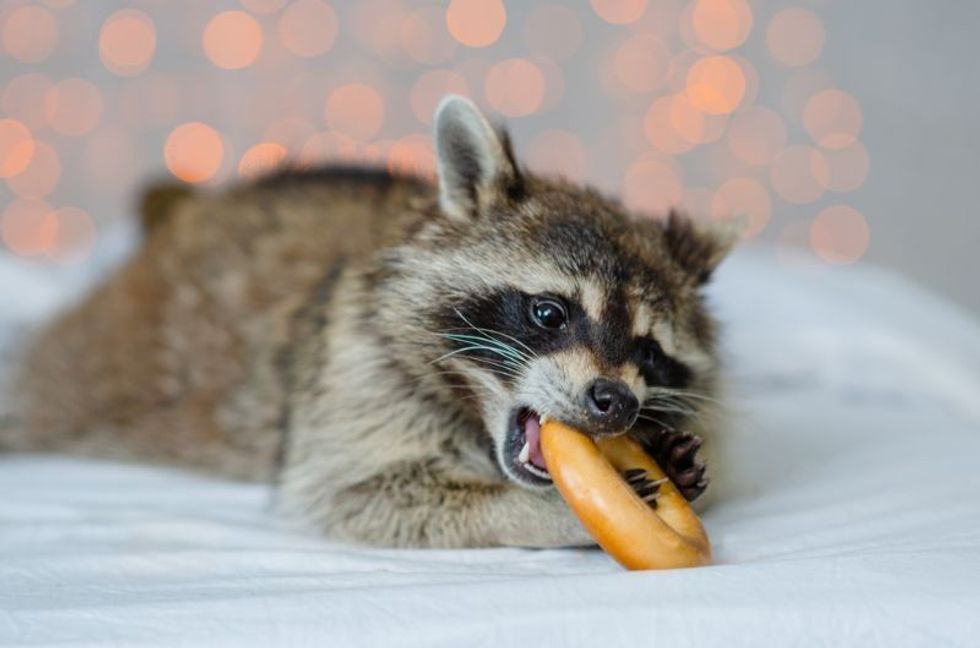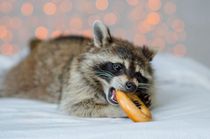The raccoon is indigenous to North America and is a medium-sized mammal.
Raccoons are one of the largest species in the Procyanidin family. They are highly interesting creatures, but sometimes they can make a mess and irritate any homeowner.
Raccoons are found throughout North America. Recently they are being seen in Europe and Japan also. Raccoons are pretty flexible. Raccoons love to live alone and are smart and curious.
Raccoons can travel for up to 18 mi (28.9 km) in search of food. If you are planning to have them around as a pet, it is a bad idea as they carry several diseases like roundworm and rabies, a harmful disease caused by the rabies virus. This disease is transmitted through saliva.
We often see raccoons in urban and suburban areas, making their homes in attics, barns, and sheds. Generally, raccoons prefer heavily wooded areas with access to water and vegetation. They prefer to make their dens in hollow parts of trees and caves.
Do you know raccoons can communicate with 200 different sounds? If you want to know more exciting facts about raccoons, then check out our articles on Kidadl like distemper in raccoons and why do raccoons wash their food.
What foods are poisonous to raccoons?
Sometimes raccoons are active in daylight, during which they search for available food sources. A raccoon's diet consists mainly of animals and also plants and vegetables. Raccoons eat almost everything as they are omnivores, including fish, insects, young mammals, eggs, vegetables, fruits, and nuts.
Some foods that raccoons eat can cause harm to them. Onions and garlic cause anemia in them. In addition to that, raisins, chocolate, and macadamia nuts are toxic to them.
In the wild, raccoons often wash their food underwater. Whenever they pick up a food item with their front paw, they put it in water and then eat it. If no water is nearby, they rub the item to make sure there is no debris on it.
What food does a wild raccoon eat?
Raccoons' diet depends on the area where they live. Raccoons that live in residential areas find their food in garbage cans, gardens, and even inside homes or other buildings. Raccoons generally prefer to live near water sources like lakes and riverbeds, where there is a fresh water source and food.
Raccoons live in different natural environments because of their diet. Raccoons eat mainly birds like chickens and other small mammals when they are in the wild. They also eat foods like berries, nuts, eggs, and insects. They love to catch prey such as frogs or fish in the water.
What food does a pet raccoon eat?

Raccoons are adorable due to their behavior, like wetting food in water before eating it. Raccoons eat a lot of fruits and vegetables along with animal proteins. They eat quite a variety of foods.
There is no defined diet for raccoons. Most diets for your pet raccoons are well prepared and available in the market for you to buy. Usually, raccoons feed twice a day when they are in captivity.
Usually, they like peanuts, seeds, bread, peanut butter, and dog or cat food. Only a few food items are toxic to raccoons.
Other than that, they eat everything. One should not feed onion, garlic, chocolate, or raisins to these animals as it makes them sick, but fresh grapes are fine. Anything high in fats like nuts or butter can cause them to gain weight and cause other issues.
How much food does a pet raccoon eat?
The life expectancy of raccoons in captivity is more than 20 years. When they are in the wild, their life expectancy is 1.8 to 3.1 years depending on local conditions such as weather or hunting. Pet raccoons eat small amounts of food at a time. Even a vet suggests feeding these pet raccoons frequently at regular intervals.
Feeding them with a small amount of as much as 1/8th cup of grain-free dog food along with fruit treats and occasional meats is considered the best. Mother's milk is the only source of food for baby raccoons until 12 weeks after their birth.
Wild vs Urban Raccoon Diets
A raccoon's face is round. Raccoons are fuzzy creatures with a black mask of fur covering the eye area. Raccoons are the largest species in the Procyonid family.
They have a body length of 40-70 cm (16-28 in) and a weight of 5-26 kg (11-57 lb). Their fur is very thick to insulate them in cold weather. They are cute looking but are scary when they are approaching humans.
Wild raccoons search for natural environments. When in the wild, they eat mammals, birds, and other small wild animals. Their favorite food includes nuts, buried eggs, and insects. Urban raccoons eat typical foods like wild berries, walnuts, acorns, and fruits such as grapes and peaches. They can also eat birds, frogs, fish, and mice.
Do raccoons hunt for their food?
Raccoons are creatures with high intelligence. They eat anything they find. Usually, raccoons eat foods that are easy for them and where hunting is not necessary.
But when the right time comes, they are highly effective hunters. They do hunt if needed. Their toes are like fragile human fingers. Their primary weapon is clawing which they do to catch their prey either on land or in water.
They commonly hunt for squirrels, insects, snakes, and small mice. They often steal bird eggs or hatchlings. As they love to be alone, they don't have the habit of sharing things or food. Once they are done with their hunt, they eat alone.
Does a raccoon eat food out of a bowl?
If you are planning to feed raccoons their lunch, you should be prepared to clean the mess post-lunch, which means raccoons are very messy eaters.
A raccoon can eat food from a bowl. Raccoons are deadly predators of chickens, birds, eggs, and reptile nests. The main diet of raccoons in spring and summer is insects, and when it comes to late summer and autumn, it prefers to have nuts, walnuts, and acorns which have high-calorie content which they need to build fat for winter.
What do raccoons eat in the winter?
Raccoons have an insistent appetite. They especially eat to store fat over winter. They do love to sleep in the winter for a long time. If the weather cooperates, they go out and search for food. If a raccoon cannot find food in the winter, then it will go to a warmer region where food is available.
When it comes to urban raccoons, they eat pet food that is kept outside or eat food from your trash cans or garbage cans. Raccoons eat whatever they can get a hold of. Along with munching your garbage, raccoons will also eat eggs, insects, plants, and animals.
Should you leave food out for wild raccoons?
Raccoons are exciting, playful, naughty pets. There are 22 subspecies of raccoons, varying in size and range.
Humans should not leave food like pet food, fallen fruit, or garbage bags outside their homes. It can create a bad environment for you and for the people in the community.
There will be many issues if humans are feeding raccoons on their property. Feeding can send the wrong signal to the raccoon that is allowed to stay on your property, and it may even enter your home. Having raccoons on your premises increases the chances of getting attacked or getting diseases from them.
Here at Kidadl, we have carefully created lots of interesting family-friendly facts for everyone to enjoy! If you liked our suggestions for raccoon food, then take a look at do raccoons have opposable thumbs or raccoon facts.










